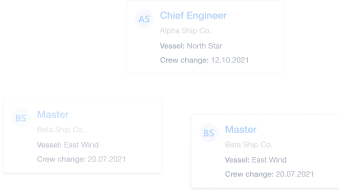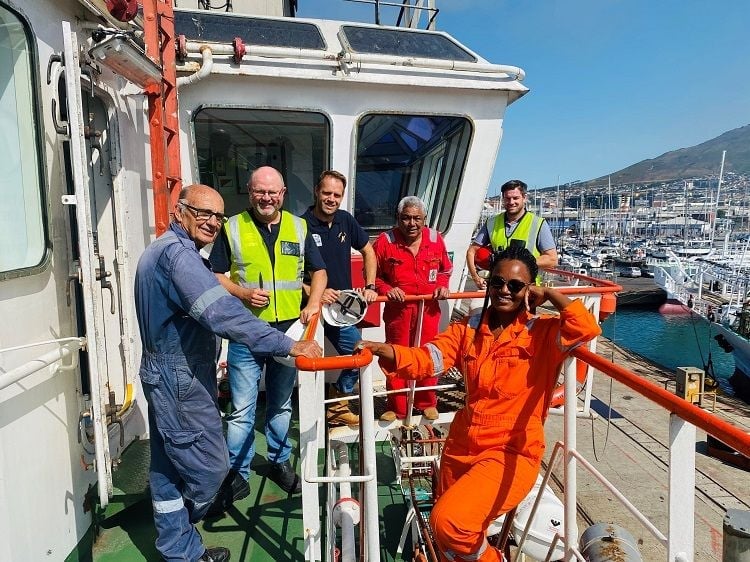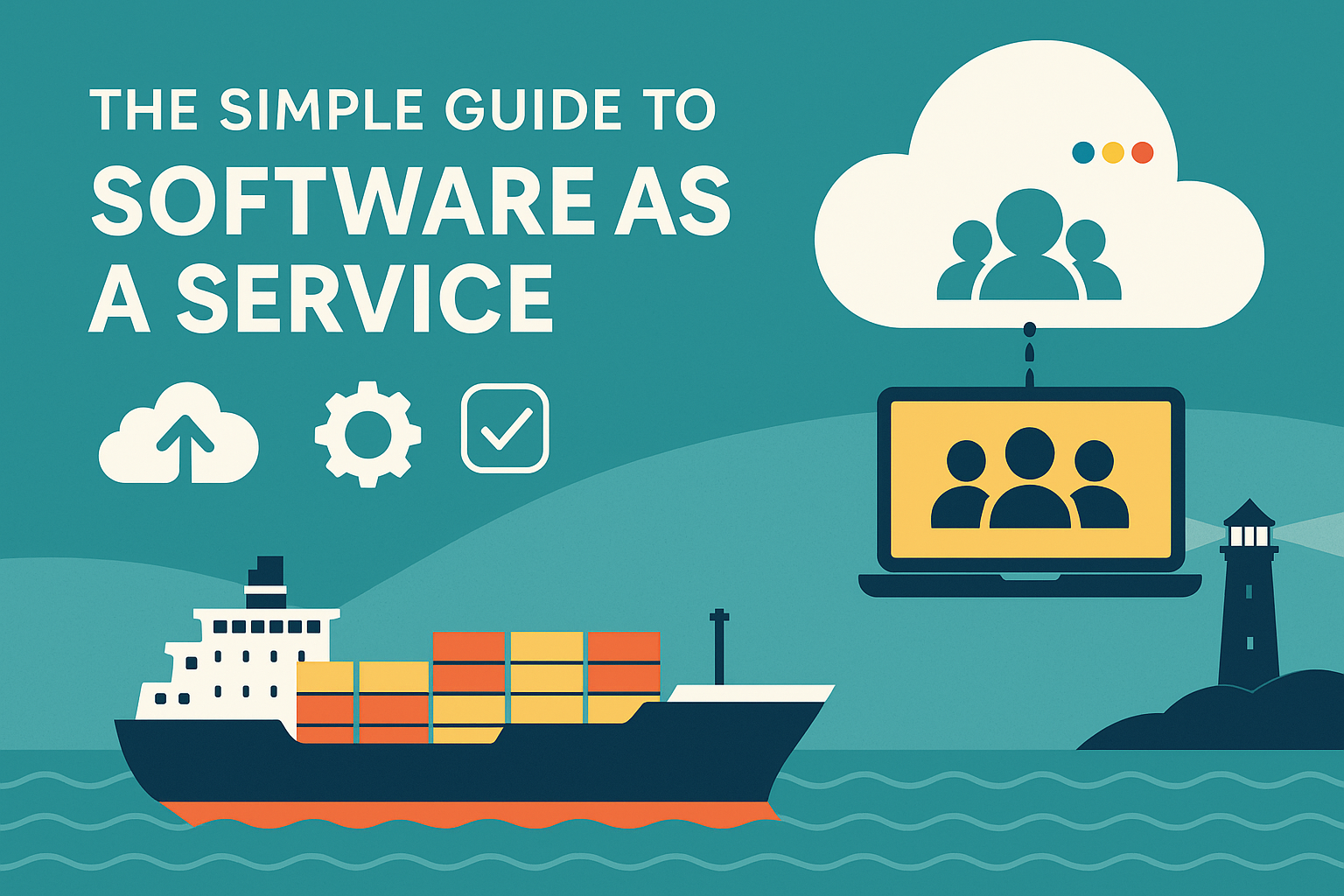How to Identify Red Flag Candidates in Maritime Recruitment
Apr 29, 2020 · 10 mins read ·
Maritime Recruitment
Picture this: you’re hiring for your open seafarer jobs and your crewing system and maritime recruitment process are working well. You were impressed by a number of the seafarer profiles or maritime resumes you looked at and created a short list of candidates you wanted to interview for your vacancies.
Now you’re at the interview stage. Some of your interviewees are great all the way through the interview...others, well others, might set alarm bells ringing halfway through.
But is it just you? Or is it the applicant?
It can be hard to tell if one answer to a question just wasn’t quite what you were expecting - after all everything else about the candidate was fine up until then. Is it just your personal bias and is the candidate actually still a good fit?
Or is your gut instinct telling you something you really shouldn’t ignore?
If only there was a way to identify red flag candidates without a shadow of a doubt.
The good news is, there is. There are a number of questions you can casually throw into your interview and then gauge their responses to make a more informed decision.

Read more: Candidate Evaluation in Maritime Recruitment
So next time you’re suddenly aware of a faint alarm bell ringing mid-interview, try asking one, or more, of these questions.
Questions and answers to identify red flag candidates in maritime recruitment
The Question: How much do you know about our company?
The Right Answer: Anything that shows the candidate has done their research and has taken some interest in your organization. Yes, the seafarer jobs they apply to might be pretty much the same, whoever the shipping company is, but the way they respond to this question can sort the good from the indifferent.
If they’ve shown at least some interest in who you are, it’s normally a good sign. Maybe they bothered to look into what type of cargo you’re known for carrying or the special equipment such as cranes or excavators that you have onboard some of your vessels.
The Red Flag Answer: A response that shows anything ranging from a fumbling reply to a shrug. Yes we know they just want to line up their next contract (and you want to meet your change over date!) but a candidate who doesn’t even bother to make an effort to respond to this question may be the reasons those alarm bells started ringing in the first place.

Read more: 5 Tips for Better Maritime Recruitment Interviews
The Question: How would you describe your former/current company/superior?
The Right Answer: In an ideal world every employee would think their manager truly deserved that “World’s Greatest Boss” coffee mug that sits on their desk. The reality isn’t quite like that. And the chances are your candidate is leaving their current company for a reason. However you’re looking for an honest - but not overly negative - reply here. Which leads us on to:
The Red Flag Answer: Anything that is really negative. Complaints. Even bad-mouthing. The thing is, some bosses aren’t great, and some companies are not the best place to work. But if your applicant launches into a tirade of negativity against their former (or current) workplace and its people, it is probably a good idea to steer clear of them.
If they think an interview is the time and the place for trash talk, this says far more about them. Do you want that person on one of your vessels for the next few months?
PS, why not follow us on Facebook, LinkedIn and Twitter / X!?
The Question: What are your strengths and weaknesses?
The Right Answer: It’s highly unlikely that your candidate is going to own up to being an excellent Second Officer but also a petty thief! But you’re looking for some level of honesty in their reply. In fact this question is more about the way they approach the question rather than what they tell you. So, moving on to….
The Red Flag Answer: Leaving aside the ‘strengths’ part of the question, it’s how your applicant handles the ‘weakness’ part that you really want to pay attention to if you already have concerns about them. The thing is, we all have weaknesses: Some of us aren’t great at math, some of us are shy and take a while to become part of a team, others might not have experience using every single type of ECDIS.

And it’s okay to admit those things. What you really don’t want to hear is someone who says something like “My biggest weakness is that I’m a perfectionist.” This indicates that they’re not being honest with you - like we say, we all have a weakness.
Read more: Assessing Candidates’ Soft Skills in Maritime Recruitment
The Question: If we have another {insert rank here} apply and they match your experience and qualifications, why should we hire you?
The Right Answer: An answer that goes along the lines of “I don’t know who you should choose - perhaps you should hire the both of us!” is what you’re looking for. Of course, we know in reality you won’t be looking for two Chief Officers or two cooks, but it’s the response that speaks volumes about your candidate.
The Red Flag Answer: While confidence that your candidate can do the job they’re interviewing for is good, being an arrogant braggart isn’t! A response that sounds anything like “Well me of course!” or “Me - I’m clearly the best seafarer for the job!” should really dial the volume of those alarm bells up a notch!
Trust your gut instinct but take nerves into account
As someone who works in maritime recruitment, you see a lot of seafarer profiles and candidates. But the crucial thing to remember is that while sitting behind a desk and just being in an office environment is something you do without giving it a second thought, for the seafarers you interview it might not be such a comfortable environment.
Put yourself in their position. Imagine switching places with them. If you haven’t spent time at sea, how lost do you think you’d feel onboard a vessel?

The point is, trust your gut instinct and if a candidate has made it through your crewing system and appears great on paper but is giving you pause for thought in person, it might just be that they’re nervous.
Read more: How to Read Body Language in Maritime Recruitment
Unless they’re downright disinterested, rude or even offensive, most candidates deserve your time.
That’s where we hope these questions can help you in your maritime recruitment efforts. By using them at the first sign of a candidate displaying behavior or giving responses you’re suddenly not sure about, you should be able to steer yourself in the right direction.
How Martide helps your maritime recruitment efforts
If you’d like to streamline your maritime recruitment drive to make life easier and more efficient, it’s time to start thinking about implementing a crewing system that has been designed for forward thinking shipping companies.
Read more: What is a Crewing System & Why Does Your Maritime Recruitment Strategy Need One?
At Martide we’ve created an all-encompassing recruitment and crew planning solution that helps small to medium sized shipowners match qualified seafarers to their vacancies for seamen, whilst simplifying the entire process.
You’ll be able to create customized recruitment pipelines for each of your vacancies, that take into account all the different variables of the positions.
Our crewing system also lets you filter our candidate database of seamen so that you only need to take a look at the seafarer profiles of those who are suitable for your positions. No more endless searching and screening!
And of course, Martide is with you every step of the way.
From advertising your jobs on our website, social media accounts and mobile app for seafarers to helping you find the right crew for your vessel. And from helping you communicate with candidates and hires to giving you an easy, foolproof way to calculate your safe minimum manning numbers.
Want to find out more? Let’s talk. Get in touch and we’ll be happy to answer any questions you might have or to arrange a free no-strings attached demo.

Eve Church
Eve is Martide's content writer, publishing regular posts on everything from our maritime recruitment and crew planning software to life at sea. Eve has been writing professionally for more than two decades, crafting everything from SEO-focused blog posts and website landing pages to magazine articles and corporate whitepapers.
UK


